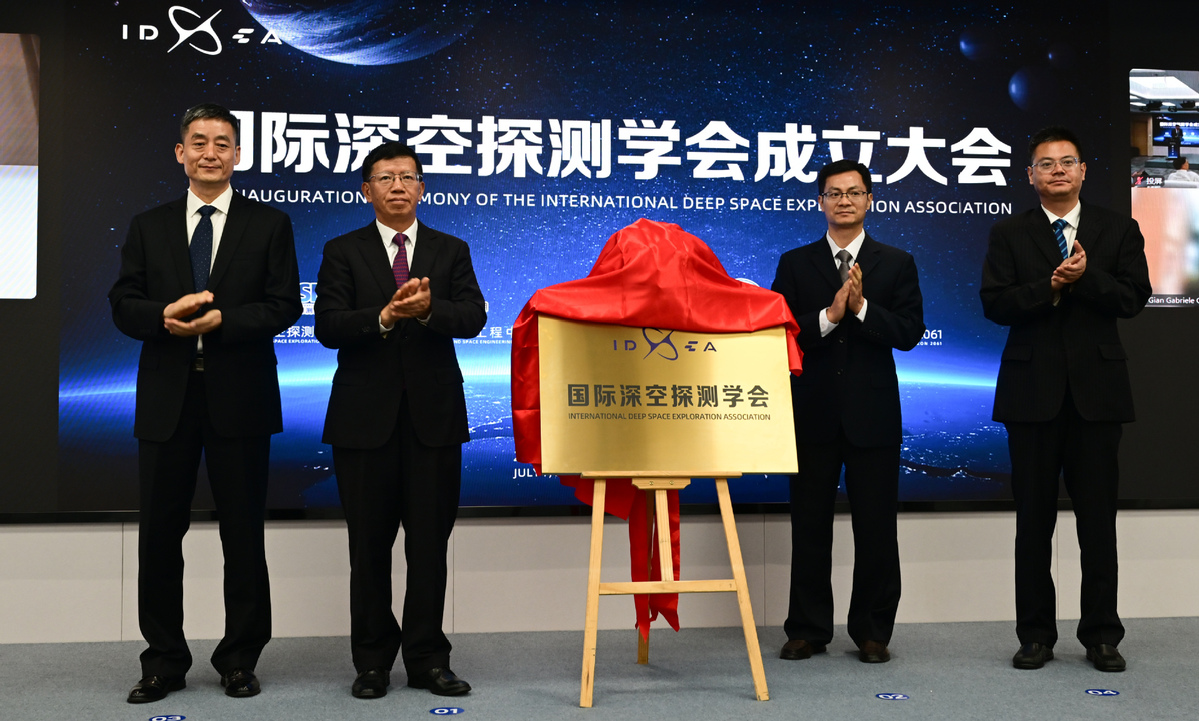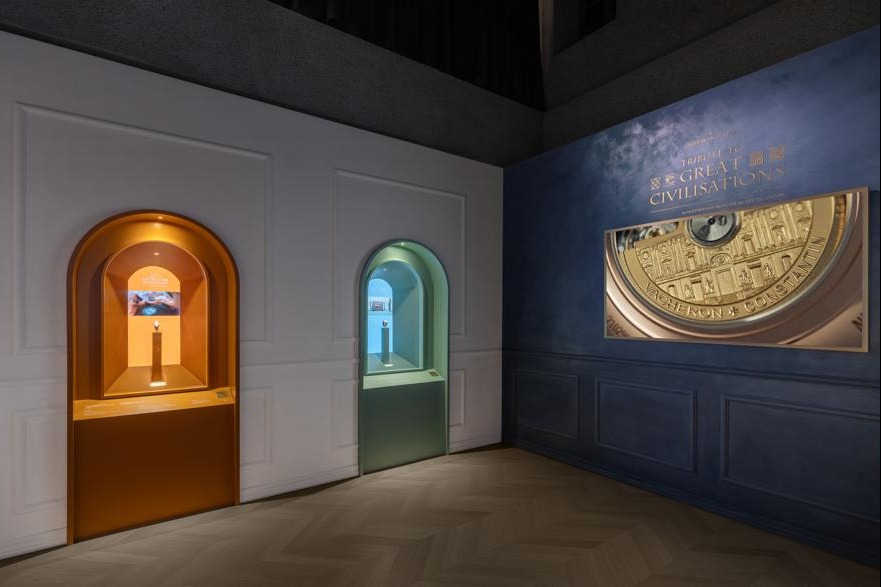Intl Deep Space Exploration Association launched in China


HEFEI -- The International Deep Space Exploration Association (IDSEA), an international academic organization dedicated to deep space exploration, was officially launched on Monday in Hefei, capital of East China's Anhui province.
The move marks a key step in global collaboration to advance space technology and build a community with a shared future for humanity in outer space.
This association was jointly initiated by the Hefei-based Deep Space Exploration Laboratory, the Lunar Exploration and Space Program Center of the China National Space Administration, the Chinese Society of Astronautics, the Chinese Society of Space Research and the French initiative "Planetary Exploration, Horizon 2061." The founding of the IDSEA was also co-sponsored by 20 academicians from China and 31 international scientists.
Wu Weiren, chief designer of China's lunar exploration program and an academician of the Chinese Academy of Engineering, was elected as the association's first chairman.
Wu said the association's establishment holds great significance for international exchange and cooperation in China's space program, as it is a crucial step toward collaborative innovation within the global space community.
He said the association will focus on areas including lunar exploration, planetary exploration and asteroid defense. It will conduct studies on trends in international deep space exploration, host international academic events, foster global talent in space science and technology, take part in making standards and rules concerning outer space, and advance the peaceful and sustainable use of outer space.
He extended a warm invitation to scientists and engineers worldwide to join the association and contribute to global exploration of the universe.
Despite being a latecomer to outer space exploration, China has rapidly emerged as a prominent player in this field while also demonstrating its commitment to cooperating with other nations.
In April 2025, China announced that seven institutions from six countries -- France, Germany, Japan, Pakistan, the United Kingdom and the United States, have been authorized to borrow lunar samples collected by China's Chang'e-5 mission for scientific research purposes.
China has also invited global partners to participate in its Mars missions. The country plans to launch the Tianwen-3 Mars sample-return mission around 2028, with the primary scientific goal of searching for signs of life on Mars.
Retrieval of samples from Mars, the first mission of its kind in human history, is considered the most technically challenging space exploration task since the Apollo program.

- Experts sharpen focus on new frontiers of AI
- Swiss watchmakers celebrate birthday with Shanghai exhibition
- Documents dating to Japan's bacteriological war in China released in Guangzhou
- Former Namibian President: China's contributions will always be bigger than many other countries
- Government program launched to assist China's young job seekers
- Student dorm AC installations fast-tracked in Shandong




































